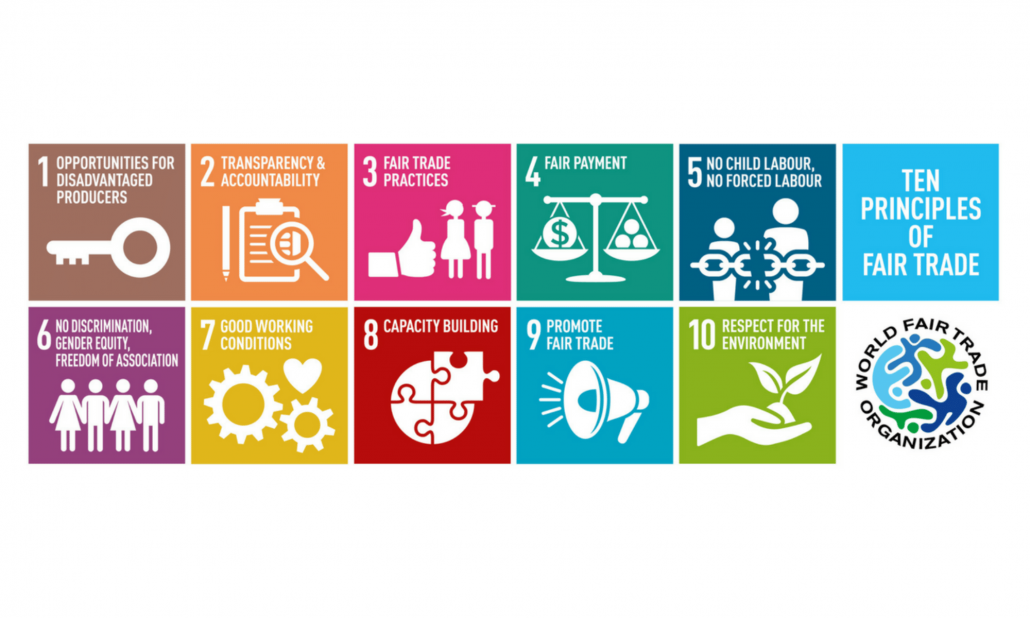Serrv
Founded in 1949, SERRV International was one of the first fair trade organisations in the world. Their journey began by helping displaced European refugees trade their handcrafts for income after the Second World War.
Since then, they have extended their reach to 22 countries worldwide, working to empower over 8,000 artisans and farmers every year by selling their beautiful handcrafts.
Image: A handcraft producer handles fabric.
Sustainable Employment, Resources, Rights, and a Vision of hope
SERRV focus on the fair trade handcraft and food markets, sourcing products mainly from Ghana, South Africa, India and Vietnam, enabling better access to markets for farmers and artisans by selling their goods to the US market. Today, they work with 49 producer groups in 22 countries, providing them with trade, training, grants, technical assistance and financial support.
As a founding member of the World Fair Trade Organization (1989), formerly known as IFAT, and the U.S. Fair Trade Federation (1994), SERRV has been a pioneer in the global fair trade movement. Only working with organisations who share their values, every letter in their name has purpose, and stands for an important part of their mission: to empower small-scale global artisans and farmers through long-term trading partnerships, helping them build Sustainable Employment, Resources, Rights, and a Vision of hope in their communities.
The Impact of your Ethical Investment
Shared Interest began working with SERRV 25 years ago, when they approached us for finance to purchase goods from producers.
CEO at SERRV, Kate Doye Betts, said:
“Shared Interest's financial help reaches far beyond enabling SERRV to provide a 50% advance payment with purchase orders twice or more a year. Artisans and farmers are able to secure the necessary raw materials to meet production and fulfill and ship orders on time.
"Once an order is shipped, the balance to the producer is paid through Shared Interest. Not only is the producer paid a fair wage for his or her product, but built into the product cost is a percentage that goes towards social and community programs, health and welfare initiatives, education and environmental projects, to mention just a few.
"The impact of that initial advance payment empowers producers both economically and socially. And with the sale of beautiful handicrafts and foods, SERRV is able to assist producers through grants, training, disaster relief, appropriate technology, design and financial aid."
Image: Handcraft producers Bhinmaya Tamang and Devika Dhakal, who work with SERRV.

A Better World in the Making
Our lending to buyers like SERRV is crucial in fair trade, as they must provide a 50% upfront payment to producers per the WFTO Fair Trade Principles. Shared Interest helps by facilitating 'recipient producer payments.'
In India, Bangladesh, Nepal, and Pakistan, we are unable to lend and get our money back due to financial regulations. By offering credit to buyers like SERRV, we indirectly help these producers access working capital, enabling buyers to pay artisans and secure raw materials for timely order fulfilment.
Satyendra Khadgi, Member and Marketing Director of Kumbeshwar Technical School in Kathmandu, Nepal, said:
“Since the early 90s, we have cultivated a lasting partnership with SERRV, enabling us to sustain our social initiatives aimed at providing free education, vocational training and employment opportunities through our income-generating program to numerous underprivileged individuals and communities.
"Beyond purchasing our products, SERRV has generously offered financial backing for our social endeavours while also enhancing our organizational capacity and resources. This enduring collaboration has played a role in empowering our organization to make a meaningful difference in the lives of those in need.”
The 10 Principles of Fair Trade
The World Fair Trade Organisation's '10 Principles of Fair Trade' specify the ways that Fair Trade Enterprises are set up and behave to ensure they put people and the planet first. World Fair Trade Organisation (WFTO) carries out verification and monitoring to ensure these principles are upheld

